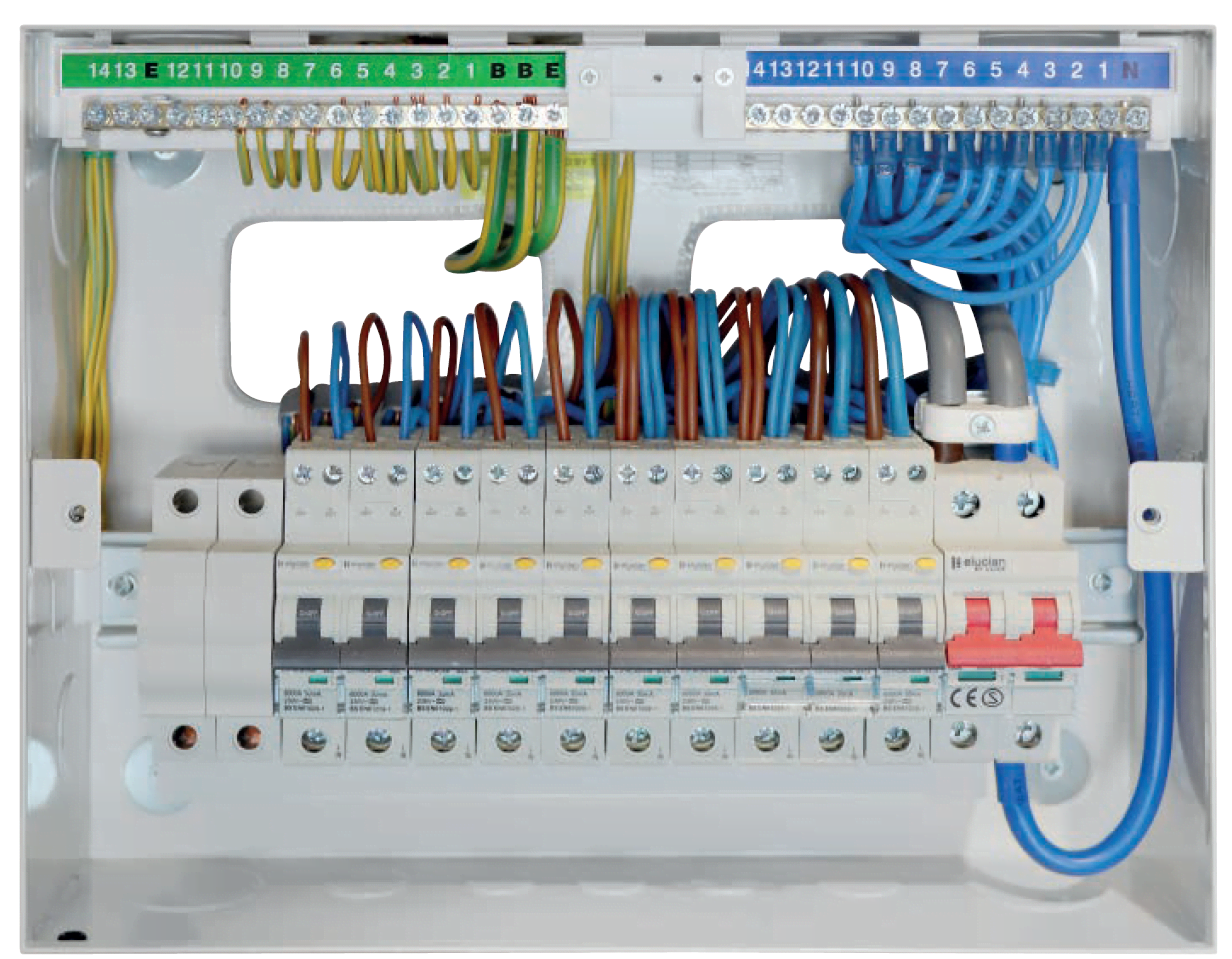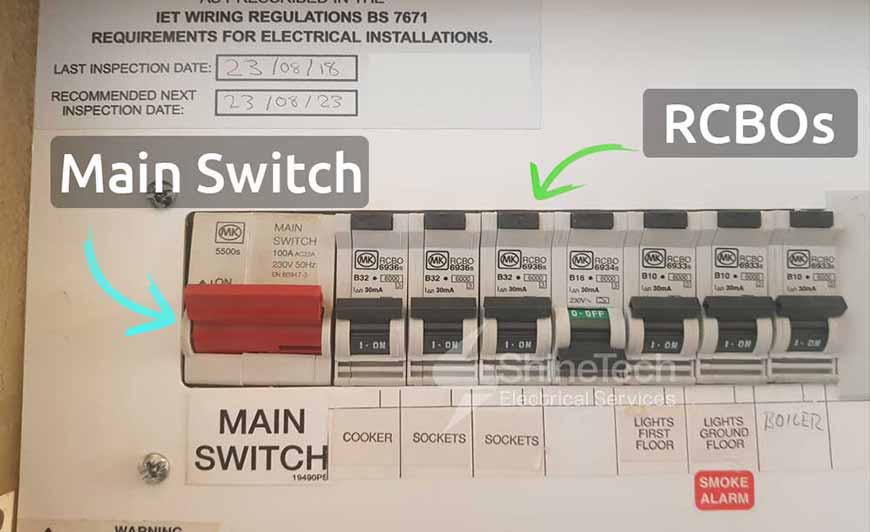A Comprehensive Guide to Maintaining Your RCBO CONSUMER UNITS Successfully
Wiki Article
The Duty of Consumer Units in Reliable Power Management Equipment
Customer systems are essential to effective power administration systems, offering as the key circulation points for electrical power within structures. The arrival of clever innovations has further enhanced their functionality, permitting for real-time data surveillance and nuanced power usage evaluation.Comprehending Consumer Systems

Comprehending the function of consumer devices begins with acknowledging their vital feature in protecting electric systems. By separating faults within specific circuits, consumer units prevent prevalent blackouts and prospective fire dangers. This isolation is attained via the usage of circuit breakers that journey or integrates that blow when a fault is found, therefore removing the electrical circulation to the impacted circuit.
Moreover, customer units facilitate the well organized distribution of power, enhancing the performance of power usage. They allow for the organized management of electric loads, which can be specifically crucial in industrial and commercial setups where demand can rise and fall significantly. Effectively kept consumer devices add to the long life of electric systems and aid in minimizing downtime created by electrical failures, inevitably sustaining the seamless operation of energy-dependent centers.
Smart Technologies Combination

A key benefit of wise consumer units is their capability to leverage advanced formulas and equipment understanding for predictive analytics. This permits preemptive modifications based on usage patterns, climate forecasts, and other variables, dramatically boosting general performance. Moreover, smart customer systems facilitate demand feedback programs, where energy usage can be dynamically adjusted throughout top durations to support the grid and decrease expenses.
The combination of renewable resource resources, such as solar and wind, is also streamlined with clever consumer devices. By wisely handling the intermittency of these resources, these units make sure a well balanced and dependable power supply. In addition, clever customer devices boost user engagement by offering in-depth insights and push-button control capacities with mobile applications, promoting a more proactive approach to energy preservation and sustainability.
Monitoring Energy Consumption
Structure on the capacities of clever modern technologies assimilation, keeping an eye on power intake becomes a vital focus within power management systems. By leveraging advanced metering facilities (AMI), real-time information on energy usage can be accumulated at granular degrees, offering valuable understandings into intake patterns and peak need periods.Smart meters and Internet of Points (IoT) tools play a pivotal function in this monitoring procedure. These tools can track power usage in real-time, transmitting data to central systems for evaluation. The collected data is then processed through sophisticated formulas to spot abnormalities, forecast future intake, and suggest optimization approaches. Additionally, cloud-based services use scalable systems for storing and examining large datasets, facilitating remote surveillance and control.
The assimilation of these technologies not only equips consumers with in-depth details regarding their power usage yet likewise sustains energy suppliers in managing load distribution better. Inevitably, exact and continuous monitoring is essential for attaining energy efficiency, cost financial savings, and sustainability objectives within power administration systems.
Optimizing Appliance Usage

One effective approach includes determining top and off-peak hours to move energy-intensive tasks, such as laundry or dishwashing, to times when energy demand is reduced. This not just reduces strain on the grid however additionally maximizes lower energy tolls. Furthermore, incorporating artificial intelligence formulas permits anticipating maintenance, ensuring home appliances operate at optimum performance and lengthening their life expectancy.
Energy monitoring systems can also incorporate user-specific choices and actions to tailor appliance usage schedules. For example, smart illumination systems can readjust brightness based on tenancy and natural light schedule, while a/c systems can maintain comfort degrees without extreme power use.
Promoting Sustainability
Advertising sustainability within power administration systems entails not only boosting efficiency yet additionally cultivating eco accountable practices. Consumer devices are integral to this procedure, as they give real-time information and control mechanisms that make it possible for individuals to monitor and reduce their power intake. By leveraging advanced innovations, customer units can recognize energy-saving possibilities and facilitate the assimilation of renewable power resources like solar and wind power.One vital facet of promoting sustainability is informing customers on the benefits of responsible energy use. Via detailed insights supplied by consumer units, customers can make informed choices that decrease their carbon footprint. For example, these units can suggest optimum times for Website running high-energy devices based upon grid need and eco-friendly power schedule, thereby lowering dependence on fossil fuels.
In addition, consumer units support the fostering of wise grid innovations, which improve the general performance and reliability of energy distribution. By allowing two-way communication between consumers and energy carriers, these systems can dynamically adjust to energy needs, lowering waste and advertising the use of sustainable energy techniques.
Verdict
Customer devices, as integral hop over to here elements of power administration systems, dramatically improve electric safety and security and performance within structures via circuit defense and wise innovation integration. Real-time data monitoring and analysis helped with by these units optimize power intake and home appliance use. In addition, the unification of renewable resource sources advertises sustainable techniques, adding to lowered general power consumption and reduced carbon impacts. Customer units play a vital role in advancing both power effectiveness and ecological sustainability.Advances in wise modern technologies have revolutionized the abilities of energy administration systems, particularly through the integration of smart consumer units.Structure on the abilities of clever innovations combination, checking power usage ends up being a critical focus within energy administration systems.Reliable device usage optimization is an important part of power management systems, intending to boost performance and lower unneeded power intake.Customer systems, as integral components of power management systems, substantially boost site link electric safety and security and efficiency within buildings through circuit security and clever modern technology integration. In addition, the unification of renewable energy sources promotes sustainable techniques, contributing to reduced total power intake and lower carbon impacts.
Report this wiki page